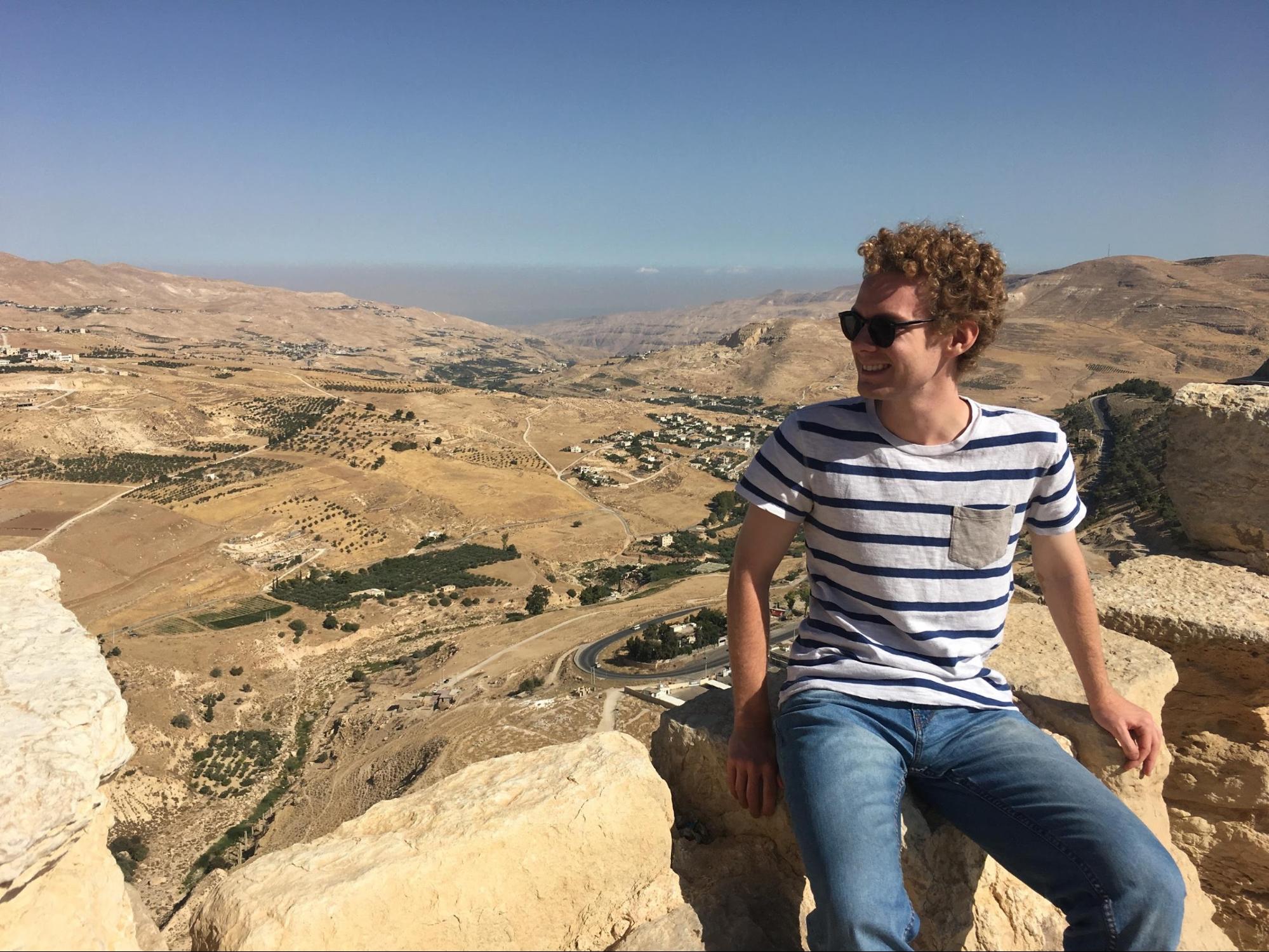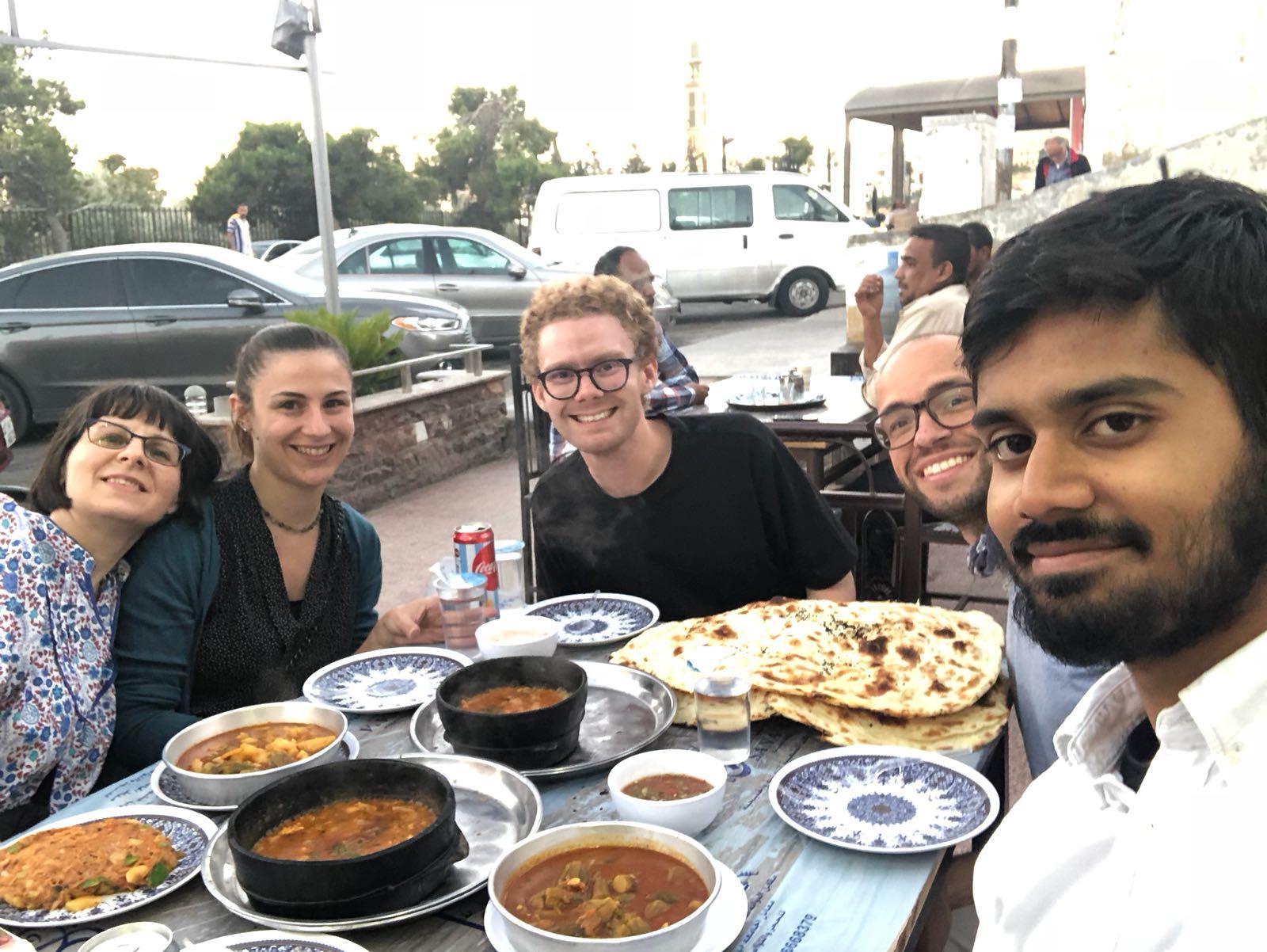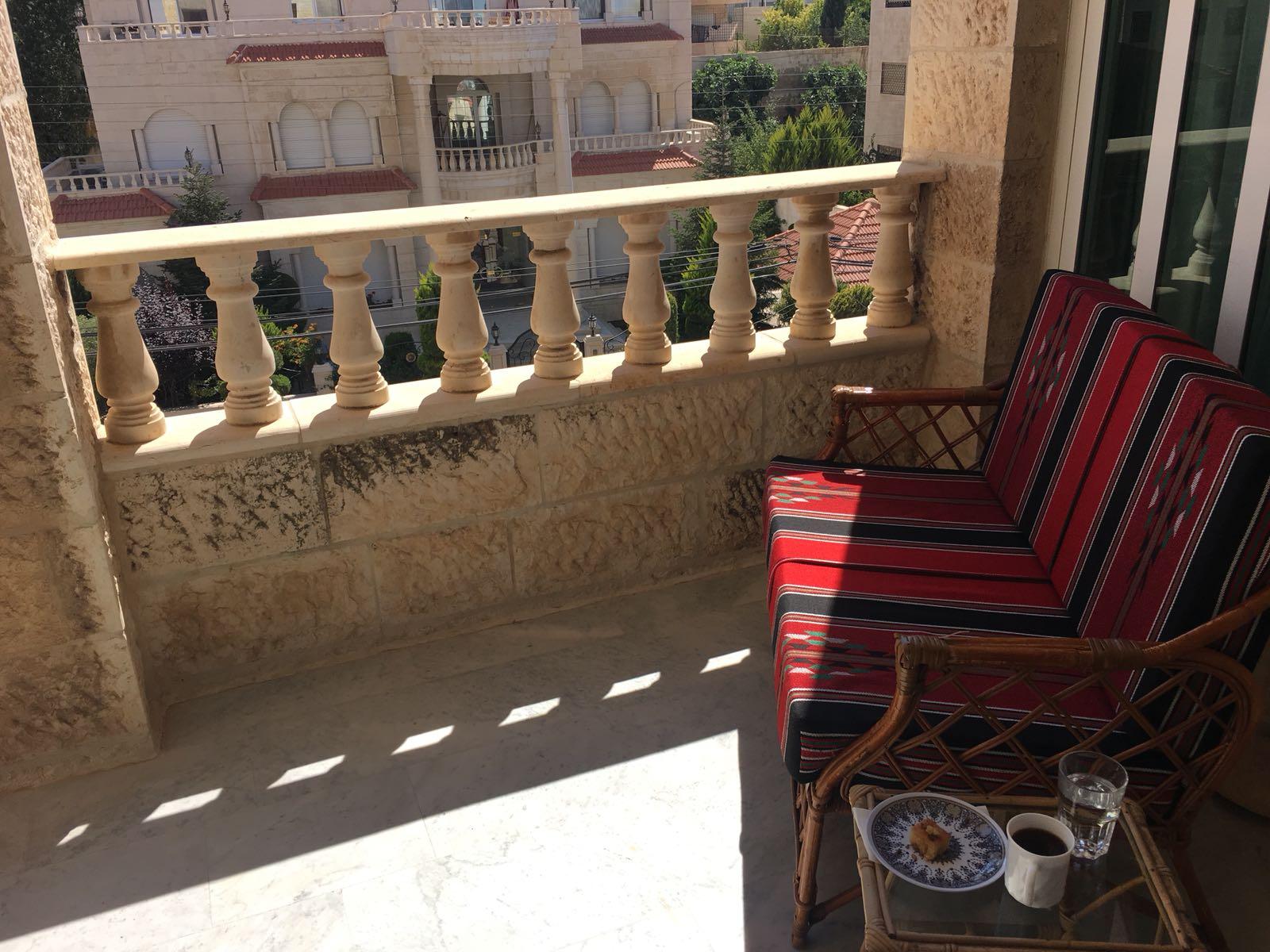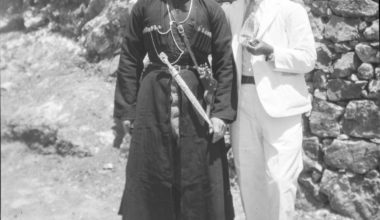
By Chris Wilson, PhD candidate in the history of the modern Middle East at the University of Cambridge.
Back in January 2018, when Dr Carol Palmer wrote to let me know that I had been awarded one of two British Institute-Qasid scholarships for the summer, I was delighted. Approaching the middle of the third year of my PhD in the history of the modern Middle East, I was struggling to keep up momentum with Arabic on top of everything else.
Though I had really benefited from intensive language programmes in the past, I knew I wasn’t going to be able to afford one this summer without some kind of additional funding. When I came across the CBRL’s British Institute-Qasid scholarship online, I jumped at the chance to apply.
The scholarship, run on an annual basis, offered to cover in full the tuition costs of an intensive summer course at the internationally-renowned Qasid Arabic Institute, as well as providing free accommodation at CBRL’s British Institute in Amman (BIA) for the duration of the course.
When I learnt that my application had been successful, I was very excited at the chance to travel to Amman and get my Arabic studies back on track. What I didn’t realise when Carol first wrote, was that I was being offered much more than a chance to push ahead with my Arabic – I was also being welcomed into the family at the BIA.

The Qasid Institute has more than lived up to expectations: eight weeks in an intensive language course can feel like a long time, but thanks to the rapid pace of the programme and the infectious energy and enthusiasm of our teachers, Ayat and Banan, I’ve not only learnt a lot but had a lot of fun too. The reading and listening exercises that we do in class are interesting and varied and will be the most immediately useful skills to take forward in my work with Arabic-language sources in the future. But thanks to Qasid’s emphasis on speaking, I’ve also gained confidence in talking about my research in Arabic, which has opened the door to fascinating conversations and surprising new lines of inquiry already.
Staying at the BIA whilst studying at Qasid has been the perfect combination: while I can’t say I’ve enjoyed the infamous Amman traffic on my daily commute between the BIA and Qasid, I’ve really benefited from being able to use the BIA’s wonderful library to do my ‘homework’, as well as from living in an institute where everyone speaks Arabic as well as English. With all my classes scheduled for the afternoons, many a morning has been spent on the balcony trying to take in the new vocabulary for the week, or just enjoying the cool breeze.

The educational benefits of life at the BIA are only one part of the story, and it would be remiss of me not to mention a very important topic which features regularly on the BIA WhatsApp group: food. I’m often in class when the group chat pings to let me know that falafels are in the kitchen, or it’s time for an afternoon coffee, but I can hardly say I’ve missed out. Everyone seems to bring a different culinary talent to the table: Rudaina Almomani, the BIA’s librarian, makes a delicious apple cake, while Rana Zoabi, the accountant, can be relied on for her many excellent recommendations for places to eat in Amman – and her equally excellent coffee; Firas Bqa’in, the executive administrator, will often treat us by stopping off to pick up knafeh on his way back to the institute, while – on a healthier note – Abu Mohammed, the BIA’s caretaker, carefully tends the institute’s grape vines and other fruit trees, presenting them with pride when they are mazboot. But – as anyone who has stayed in the BIA can confirm – it is Umm Ahmad, the wonderful housekeeper, and her cooking which really make the BIA feel like a home, as we all gather round to savour her latest mouth-watering feast. Saha!
Amidst all this eating and sitting in classrooms, I’ve also found time to get out and about in Jordan. Here again, being based at the BIA has been great: not only is Abu Mohammed willing to ferry us across the country with great patience (and speed!) but staying at an institute like the BIA means that you end up learning about and visiting places you might not even have heard of before. This was certainly the case when, at the end of July, a group of us from the institute visited not only Karak, one of the more famous Crusader castles in the region but travelled further south to its less famous contemporary Shobak, via a spontaneous detour to explore the heavily neglected and overgrown site of the seventh-century battle of Mu’tah. It goes without saying that in addition to making a lot of progress through the Qasid intensive Arabic programme, I have enjoyed my time at CBRL’s British Institute in Amman enormously, and I am incredibly grateful to CBRL for making this wonderful summer possible. I am going to miss this place, and more importantly, its people. Shukran!
Chris Wilson is a PhD candidate in the history of the modern Middle East at the University of Cambridge, where he also did his BA and MPhil. His doctoral dissertation examines the ways in which the British mandatory government conceptualised, encountered, and sought to manage mental illness in Palestine between 1920 and 1948.
The views expressed by our authors on the CBRL blog are not necessarily endorsed by CBRL, but are commended as contributing to public debate.














